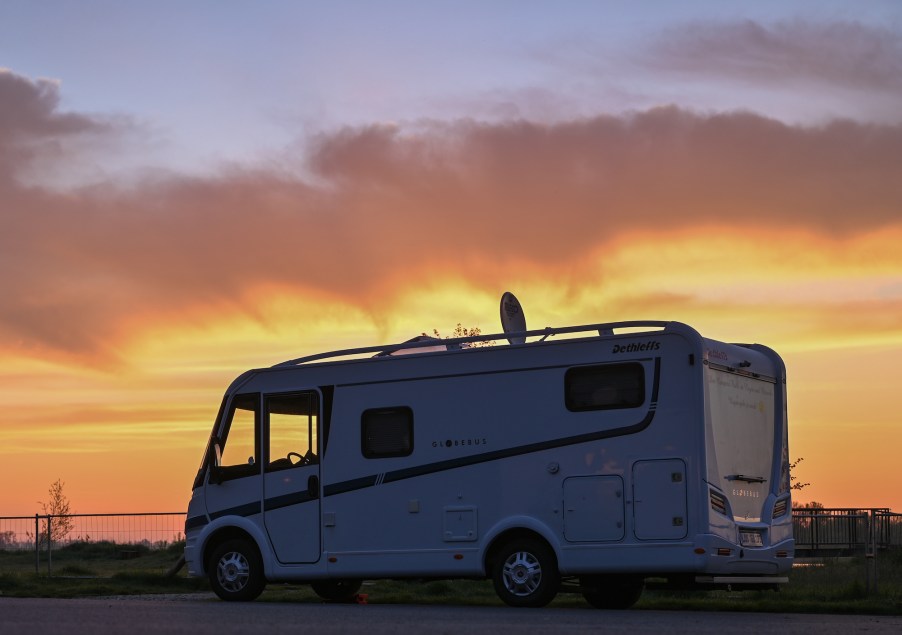
RV Ownership Costs You Should Know Before You Buy
RVs and the camper lifestyle are enjoying great popularity. One could make the argument that the pandemic spurred the revival of RVs and campers. In fact, many industry experts saw a revitalized interest in the industry before COVID-19 struck. But before you run out to purchase an RV, you should know all the costs you’re facing in owning one.
Purchasing and storing your RV
If you’re lucky, you can purchase an RV without financing. But most buyers have to finance, and you should consider the terms carefully.
RVGuide.com explains that if you put a $20,000 down payment on a travel trailer that costs $50,000, you’d be financing $30,000. With a five-year term and a 5 percent interest rate, your payments would be $566 per month. You’d pay that amount whether you’re on the road with the trailer in the summer or it’s parked for the winter.
If you got a travel trailer versus an actual RV, you’d have your tow vehicle to consider too. Your vehicle has to be able to tow the trailer and anything in it. If it can’t, you’ll have to get a smaller trailer or buy a bigger truck.
With such an investment, you’ll want to keep your RV stored out of the elements, particularly if you live in a colder climate. If you don’t have space to do that where you live, you’ll need to pay someone to store it for you. The cost for unheated storage could be as much as $75 or more per month. If you want or need heated storage, plan to pay up to $150 or more every month.
RV taxes, registration, and insurance
You must ensure your RV is insured like any other motor vehicle, KOA reports. There could be exceptions if you have a towable RV, but not for a drivable one. Either way, insurance is a good idea.
The cost depends on a few things, like the insurance company, where you live, and your driving record. Doing your homework pays off in this area, so ask questions, get estimates, and take your time finding the best deal. Expect to pay around $300 per year for a trailer and $600 for a motorized RV.
Also, expect to pay registration fees and taxes on your camper. The price varies depending upon where you live, so knowing those fees beforehand is a great idea. Many state DMVs offer that information on their websites.
Operating and maintenance costs
Fuel will be a considerable cost for your RV. Whether you buy a motorhome or a trailer, you’ll still have to pay for gas. If you love the mountains or have a large camper, you’ll get even less fuel for your buck.
It’s also a good idea to keep an eye on the news. The recent pipeline cyberattack quickly prompted gas shortages. So stay in the know to prevent getting stranded.
You’ll also need supplies for your camper, including dishes, cutlery, and disposable goods such as paper towels and toilet paper. The first time you stock your RV might seem discouragingly pricey. But after the initial cost, it won’t seem so bad.
Finally, don’t forget about maintenance. RVs and trailers require upkeep, including replacing worn parts like tires and brakes. You might encounter pest problems, too. And in traveling to the great wide open, the rough and tumble of various terrains can take a toll on your vehicle.


